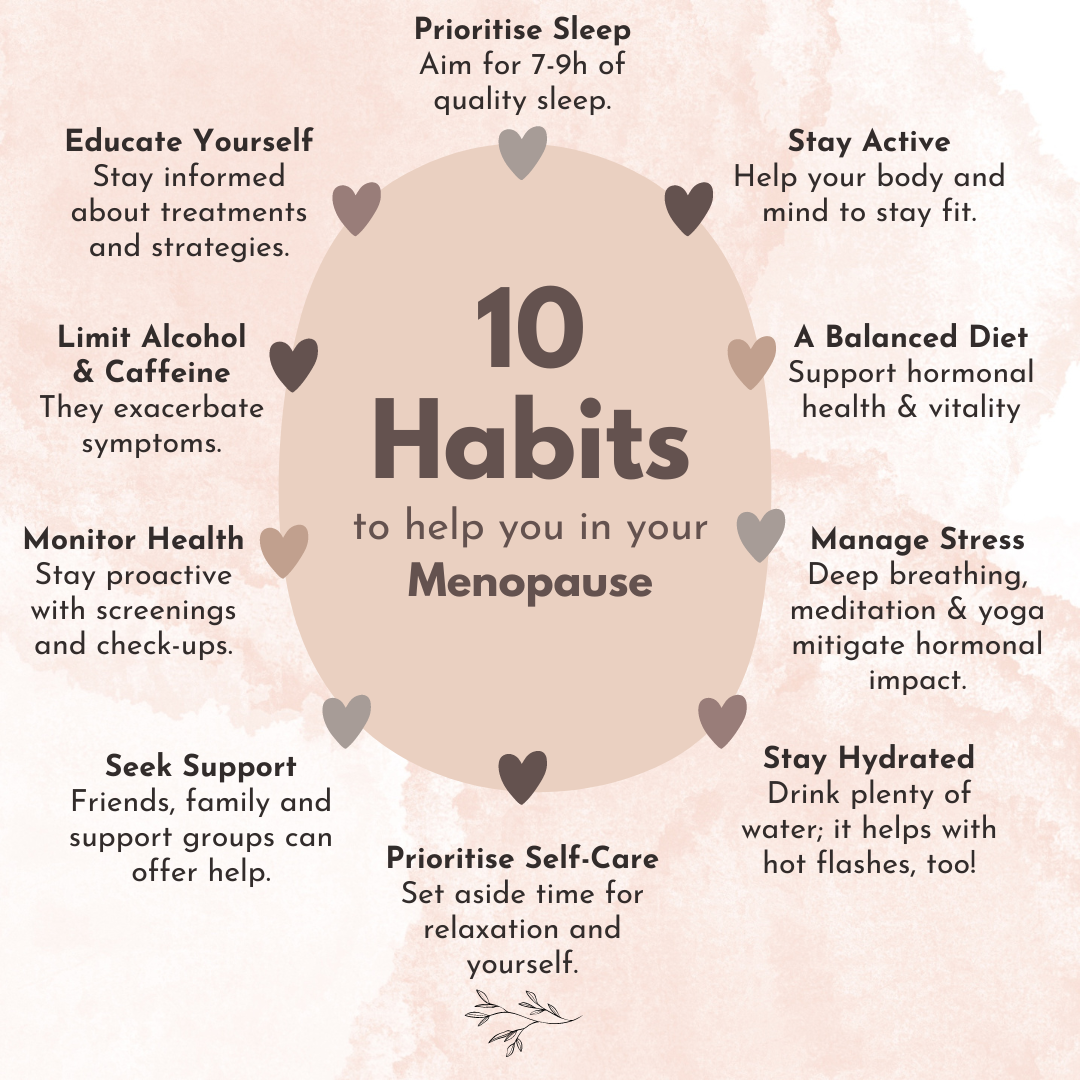10 of the physical symptoms the menopause brings
The menopausal journey is a natural phase, marking the end of women’s reproductive years – but it being natural doesn’t mean that it’s always nice.

And while it’s often only associated with the common hot flashes and mood swings, menopause can also bring a plethora of physical changes with it, that may catch many of us off guard. Here are ten of the most common physical symptoms the menopause brings and how to navigate them with grace and knowledge.
1. Lovely night sweats
Ah, yes, we’re starting with the dreaded night sweats. The menopause often brings on sudden and intense episodes of sweating during sleep, leaving a lot of us quite drenched and, well, frustrated. You can combat those nocturnal heat waves by wearing moisture-wicking sleepwear, keeping your bedroom nice and cool – and practicing relaxation techniques before bedtime.
2. Uncomfortable vaginal dryness
Because of our drastically declining oestrogen levels, you might develop a vaginal dryness and resulting discomfort. To be able to keep up intercourse with your partner without it becoming stressful or even hurting, make sure you have water-based lubricants handy, are staying hydrated – and maybe even discuss hormone replacement therapy options with your GP.
3. Hair loss and thinning
A lot of us notice changes in our hair texture and density, too – often leading to unwanted hair loss and thinning. As our hair is quite a large part of our appearance, this can be especially frustrating and lead to insecurities. Nourishing, hydrating shampoos and conditioners are important, as is avoiding harsh styling treatments. There are also hair vitamins specifically designed for women available; and if you’re unsure, ask your dermatologist for more personalised advice.
4. Wild skin changes
Menopause can wreak havoc on our skins, too, causing dryness, wrinkles, and age spots. Make sure to moisturise daily, wear sunscreen religiously (we can’t stress this enough) and incorporate more antioxidant-rich foods into your diet – like berries, nuts, and vegetables such as broccoli or spinach.
5. Joint pain
Well, it’s getting clearer now that our whole body is affected, isn’t it? Hormonal fluctuations can exacerbate joint pain and stiffness, making everyday activities a sudden challenge. Low-impact exercises like swimming and yoga (and remember, no better date to start than now!), but also applying heat or cold packs to sore area are excellent ways to counter this.
6. Digestive issues
Of course, our organs have something to say, too. Bloating, constipation, and gas are common complaints due to our hormonal imbalances. A fibre-rich diet, staying hydrated, and practicing mindful eating habits will help sooth your body.
7. Breast changes
Our breasts might change as well – be it breast size, density, and sensitivity – causing discomfort and not uncommonly anxiety in some women. Always stay breast-aware by performing regular self-exams, wearing supportive bras, and seeking medical attention if you notice any unusual lumps or changes.
8. Headaches, of all things
Of course, why wouldn’t we get headaches out of this! Solutions here are the same as they’ve always been: Hydration, stress-relief techniques like meditation and deep breathing help, as well as avoiding known triggers such as caffeine or alcohol.
9. Dizziness and vertigo
Interestingly (and annoyingly), menopause-related hormonal change can also somehow affect the inner ear, leading to feelings of dizziness and vertigo. Stay steady on your feet by practicing balance exercises, avoiding sudden movements, and consulting an ear, nose, and throat specialist if your symptoms persist.
10. Draining fatigue
And last but not least, it often brings on bouts of fatigue and lethargy, leaving a lot of us feeling drained and depleted at times. Make sure to prioritise your sleep, maintain a balanced diet, and incorporate regular physical activity into your routine.
That’s quite a handful, isn’t it? Well, lucky for us, a lot of the symptoms on the list can be tackled with similar approaches. Knowing and applying those self-care strategies may even be enough to shut some of them away for good, before they even happen. Remember, you are not alone on this journey, and there are plenty of us that can help and support and a myriad of resources out there. These are most common physical symptoms the menopause brings but everyone is different. You got this!




Leave a comment